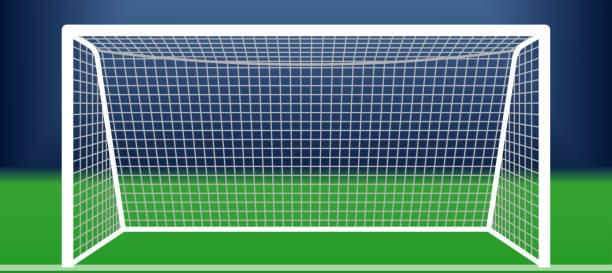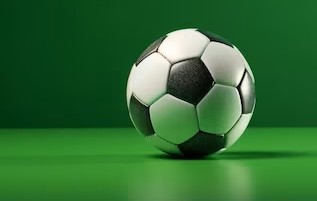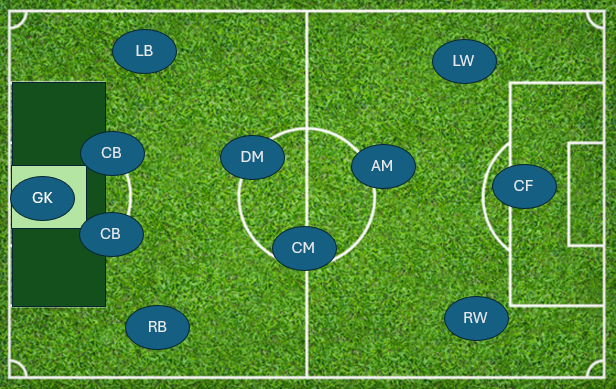













THE GOALKEEPER.

The goalkeeper (GK) is an important position in football, primarily responsible for preventing the opposing team from scoring.
Positioned in the goal, the goalkeeper is the only player allowed to use their hands within the penalty area. Here’s a detailed
overview of the goalkeeper's role and responsibilities:
Positioning:
- ▫ IN THE GOAL: The goalkeeper stands in front of the goal, typically positioned centrally to cover the maximum area of the net.
- ▫ READING THE GAME: Goalkeepers must constantly adjust their positioning based on the play, ensuring they are optimally placed to make saves.
Primary Role: Shot Stopping:
- ▫ SAVES: The primary duty of a goalkeeper is to make saves from shots on goal, using various techniques such as diving, parrying, and
catching.
- ▫ REFLEXES: Quick reflexes are crucial, allowing goalkeepers to respond to shots from close range and unpredictable angles.
- ▫ POSITIONING FOR SAVES: Goalkeepers must position themselves effectively to anticipate where the ball will be shot and react
accordingly.
Distribution:
- ▫ STARTING ATTACKS: After making a save, goalkeepers can initiate attacks by distributing the ball quickly, either through throws or kicks.
- ▫ SHORT AND LONG PASSES: Goalkeepers should be proficient in both short passes to defenders and long kicks to wingers or forwards to
transition play effectively.
Organizing the Defense:
- ▫ COMMUNICATION: Goalkeepers often act as leaders on the field, directing defenders, especially during set pieces, and ensuring the defensive
structure is maintained.
- ▫ COMMANDING THE BOX: They must be vocal and assertive, calling for the ball and organizing the defense during corner kicks and
free kicks.
Defensive Duties:
- ▫ CATCHING AND CLAIMING CROSSES: Goalkeepers need to confidently catch or punch away high crosses into the penalty area, minimizing
scoring opportunities.
- ▫ SWEEPING: In modern football, goalkeepers may need to act as sweepers, coming off their line to clear balls played behind the defense.
Tactical Variations:
- ▫ SWEEPER KEEPER: Some goalkeepers play as “sweeper keepers,” who are more involved in the build-up play and often play higher up the pitch,
ready to clear long balls or participate in passing sequences.
- ▫ SHORT-STOPPING FOCUS: Traditional goalkeepers might focus more on saving shots and organizing the defense, playing deeper and more
conservatively.
Skills and Attributes:
- ▫ SHOT-STOPPING ABILITY: A goalkeeper must possess excellent reflexes and agility to make crucial saves.
- ▫ DECISION-MAKING: Quick and effective decision-making is vital, especially when to come off the line or when to stay put.
- ▫ POSITIONING: Proper positioning is essential for maximizing coverage of the goal and anticipating shots.
- ▫ BALL SKILLS: Goalkeepers should be comfortable with both their hands and feet, being able to distribute the ball accurately under
pressure.
Summary: The goalkeeper is an essential player in football, tasked with preventing goals and organizing the defense. With unique
responsibilities, including shot-stopping, distribution, and communication, goalkeepers play a pivotal role in a team's success. Their
skills, including reflexes, decision-making, and positioning, are critical in influencing the outcome of matches.




























